#DaimlerAG
Mercedes Recalling Almost One Million Cars Over Bad Brake Boosters
Over the weekend, Mercedes-Benz announced a global recall campaign encompassing nearly a million vehicles it believes could be afflicted with faulty brake boosters.
“We have found that in some of those vehicles, the function of the brake booster could be affected by advanced corrosion in the joint area of the housing,” the automaker explained in a statement.
While the issue is global, the United States is believed to account for roughly 300,000 units, with the National Highway Traffic Safety Administration (NHTSA) advising against driving any vehicle involved in the recall. Affected units will undoubtedly offer lowered braking performance and can even cause total brake failure in some instances. Rare or not, the NHTSA feels this one is simply too risky to chance.
Mercedes to Focus on Premium Luxury Vehicles Again
Mercedes-Benz has said it will cut back its entry-level offers to better prioritize premium vehicles with loftier margins. While this strategy has become relatively uncommon throughout the industry, even among some mainstream brands, Mercedes has historically been synonymous with high-end luxury cars. One wonders why it bothered chasing volume to begin with, especially since it doesn’t seem to have panned out for the company.
While executives had previously hinted at its revised strategy in interviews, Mercedes officially unveiled its plan to investors on Thursday. The German brand will focus investments on top-of-the-heap models like the S-Class at the expense of entry-level products that have failed to garner juicy profits.
Mercedes Confused Over Why It Ditched V8s for U.S. Market
While Mercedes-Benz has gradually been moving away from larger motors, it was still a shock to learn that the company would be removing the brunt of its V8-powered lineup in the United States for the 2022 model year. Higher-end vehicles typically come with broader profit margins and Americans tend to like V8s, so it was strange to see the brand tailoring its product at the last minute. Less surprising, however, was watching the entire automotive community speculate on the reasons why.
As your author is constantly suspect of regulations, it was my assumption that emissions compliance was the main culprit. But one would assume European rules would have put the kibosh on V8s in the home market long before cars were neutered in North America. Mercedes likewise suggested this was not the case, alluding to supply chain issues that have been hampering the industry since the start of 2020 while it promised to fix the problem as soon as possible. Then, Daimler executives started giving different answers and hit the reset button on the global supposition surrounding the discontinued engines.
Nissan Dumping Stake in Daimler
On Tuesday, Nissan Motor Co. announced that it would be selling its shares of Daimler AG. The Japanese firm owns about 1.5 percent of Germany’s oldest automaker and the move is something many were predicting after Renault did the same in March.
Nissan’s offloading will mimic its partners and likewise use an accelerated bookbuild offer that basically means dumping shares as quickly as possible with help from an underwriter. Investors were to expect shares to be priced around 69.85 euros apiece, netting the automaker at least $1.2 billion if everything goes smoothly.
Chip Shortage Forcing Daimler to Stall Production
In today’s update on the semiconductor shortage, we learn that Daimler has elected to place over 18,000 Mercedes-Benz employees on reduced schedules. With an insufficient number of chips, the manufacturer cannot produce vehicles with sufficient reliability and has decided to ease off until resupplies are more predictable. Unfortunately, that’s unlikely to happen for at least a few months — forcing Mercedes to roll with the punches much like Subaru, General Motors, and Ford. Though this is a problem that’s impacting the entirety of the automotive industry.
Daimler made its announcement on Wednesday, stating that facilities in Bremen and Rastatt will be the first (and hopefully only) plants affected by the stall.
Judge Approves Daimler AG's $1.5 Billion Diesel Emissions Settlement
On Tuesday, a federal judge approved a $1.5 billion settlement to pump the brakes on an investigation conducted by the U.S. government pursuing claims that Daimler used illicit software that allowed excess diesel emissions on 250,000 units. This runs in tandem with another $700 million settlement the automaker is making with vehicle owners, which is likely to see final approval in a few months, and an extensive recall campaign.
The federal case involves the U.S. Justice Department, the California Air Resources Board, and follows a trend of fines for automakers accused of misleading regulators so that diesel vehicles could continue being sold. This kicked off with Volkswagen’s Dieselgate in 2015, with numerous government probes taking place in Europe and North America over the next five years. Many automakers have since been discouraged from relying on diesel powertrains due to rising regulatory actions. European countries that once championed the fuel as ecologically preferable to gasoline, after the advent of biodiesels, are now obsessed with tamping down NOx emissions and getting more electric vehicles onto the road.
Daimler Is Just Going to Be Mercedes-Benz, Says CEO
Daimler had decided some serious changes need to be made before the end of 2021, including a name swap and separate listing for its commercial truck division. While the reason given was to better facilitate the company’s transition toward a “zero- emissions and software-driven future,” investors have been critical of Daimler’s share price after it cratered in March of last year. Though we would argue the bigger concern is the automaker’s lackluster (or absent) growth and declining revenue since 2018.
Regardless, CEO Ola Källenius believes continued changes to the firm’s corporate structure are the only way to go. By 2022, Daimler will simply be known as Mercedes-Benz and have spun off Daimler Trucks with its own listing on the Frankfurt stock exchange.
Mercedes Reportedly Shipping the ESprinter Stateside in 2023
Mercedes-Benz is reportedly planning to bring an electric commercial van, presumably the eSprinter, to the United States as early as the third quarter of 2023. While the all-electric van launched earlier this year in Europe, the manufacturer said it wanted to hold off on North American exports for reasons that should be obvious to anybody familiar with the industry. The model’s rather low range (up to 96 miles, depending on load and route) makes it a poor fit for North America’s wide-open spaces, as does its standard 75 mph (or optional 50 mph) top speed. Meanwhile, the necessary homologation efforts required to sell the eSprinter in the U.S. would only increase the price of a vehicle already ill-suited to the nation’s roadways.
Were it to come here now, we’d be looking at a cargo van with an MSRP dangerously close to $60,000 and the top speed and range of a small-displacement dirtbike. Regulatory incentives aside, it doesn’t seem like a worthwhile addition to the North American landscape. But analysts are worried that Mercedes-Benz needs to get a move on and ensure the vehicle comes to the U.S. market before it’s edged out by the competition. It’s a position we’d be inclined to agree with had the eSprinter arrived with more robust specifications.
Reinventing the Wheel: Daimler Intentionally Becoming a Smaller Company to Facilitate Tech
Daimler Chairman Ola Källenius went against the grain on Thursday by admitting the company he’s been tasked with overseeing will become significantly smaller in five years. That’s normally not the kind of thing you want to telegraph to shareholders via the media but he’s convinced this is the best course of action for the business.
“The next five years we will become a smaller company,” Källenius told Reuters. “We will have a fundamental change in the industrial footprint on the powertrain side.”
The future of Daimler apparently involves a half-decade metamorphosis into a services-focused software company that just so happens to build vehicles. But the vehicles won’t be those internal-combustion jobs that you grew up around. Instead, they’ll be hyper-efficient electrics from Mercedes-Benz as it re-imagines luxury within the strict confines of environmental sustainability. As a byproduct, Daimler will need fewer employees to help manufacture automobiles.
BMW Considers Joint Mobility Venture With Daimler
Despite every manufacturer on the planet eager to inject mobility services into the business, the array of programs that encompasses has yet to establish itself as a reliable source of revenue. Frankly, the whole thing seems like a gigantic money pit for the industry made worse by how loosely the term is defined. Customer data acquisition, vehicle connectivity, electrification, subscription programs, over-the-air updates, and autonomous driving all fall under the umbrella of “mobility” that’s costing automakers a bundle with the promise of being profitable later.
This week, BMW CEO Oliver Zipse acknowledged the premium his company has had to pay to maintain such programs and that it’s considering a joint venture with Daimler AG to help mitigate cost. This would presumably expand the German-based Free Now car-sharing program they already share — though BMW was cagey on the details.
Fancy Forward: Mercedes-Benz Can No Longer Cater to Plebs
Mercedes-Benz looks poised to retreat from high-volume compacts. During an online corporate strategy meeting held on Tuesday, Daimler CEO Ola Källenius indicated that the luxury subsidiary may have overextended itself.
“Maybe we went at a bit too far to cover each and every space into each and every segment. Compact particularly comes to mind,” he explained. “This is not where the main thrust should go, we should not become a competitor of the volume makers.”
But the company only has itself to blame for that. Around a quarter of the brand’s annual sales come from compact vehicles and they’ve been taking up a larger share of its product portfolio. Källenius seems to think Mercedes has done enough to broaden its appeal and need to refocus on higher-end vehicles with better margins. “Our [current] strategy is designed to avoid non-core activities,” he said, adding that funds will be prioritized for more profitable products.
“We’re not chasing volume, we’re targeting profitable growth.”
Mercedes-Benz Abandons Manual Transmission, Sticks With Streamlining
As the manual transmission gradually joins the wheel-mounted throttle lever in the automotive history trash bin, we’ve been wondering which manufacture would be the next to take a bold stance against be-clutched vehicles. Today we have our answer, thanks to a tweet explaining the brand’s research boss had indicated Mercedes-Benz doesn’t have room for manuals in its current restructuring program.
“The head of @MercedesBenz’s R&D operations, Markus Schaefer, has confirmed the company will ‘eliminate manual transmissions’ as part of cost-cutting initiatives that will also see a ‘substantial reduction in platforms’ and a ‘very dramatic reduction in combustion engines,'” automotive journalist Greg Kable explained via social media on Tuesday.
Daimler Agrees to Pay $2.2 Billion Diesel Emissions Settlement
Daimler has officially agreed to pay $2.2 billion as a resolution to the United States’ diesel emissions cheating investigation and over 250,000 claims from Mercedes-Benz customers. The automaker stated that it was likely going to settle in August, estimating a need to set aside roughly $1.5 billion to appease U.S. authorities. Another $700 million was earmarked for civil suits, with the company assuming millions more would be needed to fulfill the requirements of the various settlements.
Court documents shared by Reuters show the company agreeing to pay 250,000 owners up to $3,290 each on vehicles that exceed regulatory emissions standards through the use of emissions cheating software. It also decided against opposing spending $83.4 million in attorney fees and expenses for the owners’ legal representation — something Volkswagen called “unwarranted” in a similarly sized suit where the attorneys were only asking for $59 million. However, VW’s emission woes have remained obnoxiously persistent since 2015 and have cost it well over $40 billion.
By contrast, Daimler is getting off with a slap on the wrist by settling for just a couple billion smackers. Although the likelihood of further criminal action remains relatively high in both the United States and Europe. Keep in mind that it took prosecutors nearly five years just to get this far and governments around the globe are disavowing diesel vehicles as if they appeared in a group photo on Jeffrey Epstein’s private island.
Daimler Promises Digital Perfection With 2021 Mercedes-Benz S-Class
The S-Class has always been the sparkling sapphire in Daimler’s crown. The model has historically offered unparalleled luxury and cutting-edge tech that gradually trickles down to the rest of the lineup. It also shows off what Mercedes-Benz is capable of when, running on all cylinders, it sets out to make the best car money can buy without crossing over into obscene extravagance. In this respect, the 2021 S-Class seems to deliver as it always does.
A little larger than its predecessor, the next incarnation of Mercedes’ finest comes in at 208.2 inches long, 76.9 inches wide and 59.2 inches tall. Its extended wheelbase and short overhangs gives it the impression of a smaller vehicle from afar, however. While the manufacturer happily suggests this allowed for an overall increase in the cabin airiness, Daimler admits the model’s technology is what’s supposed to get one salivating — and it did its utmost to make sure it’s omnipresent.
With Range Comes Dominance? Daimler Strengthens Relationship With Chinese Battery Maker CATL
With practically every automaker on the planet attempting to make the electric vehicle segment work for them as well as Tesla has, they’re stepping all over each other to gain access to the components necessary to build them.
Everything from securing the raw materials for high-density cells to improving relationships with established battery suppliers will be essential for maximizing market share and embarrassing industry rivals like the little bitches they (hopefully) are. This has been especially true of German brands, who are trying to roll with increasingly demanding emission rules in Europe and China while likewise hoping to improve all-electric range and lower EV production costs.
Daimler, which already has supply deals with SK Innovation, LG Chem and Farasis, is seeking to bolster its partnership with China’s Contemporary Amperex Technology Ltd. (CATL) to address some of the challenges listed above. Mercedes-Benz wants to launch its EQS luxury electric sedan using CATL cells in 2021 — ideally with at least 435 miles of range per charge. While Daimler uses Worldwide Harmonized Light Vehicle Test Procedure (WLTP) metrics that typically average lower when assessed by the U.S. regulators, the proposed target remains enviable.



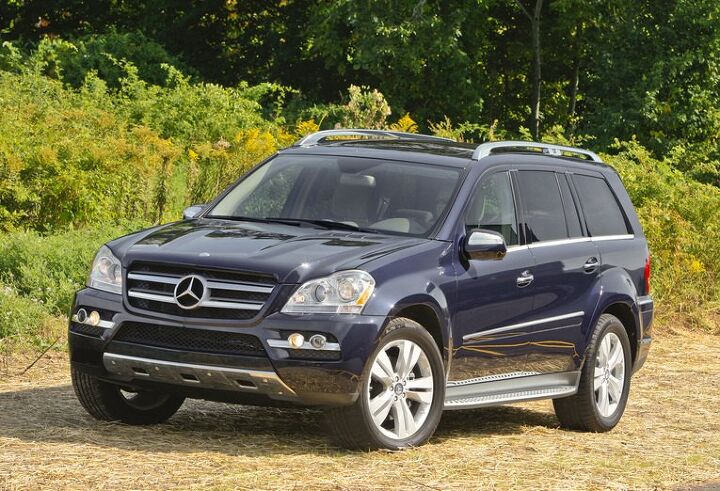
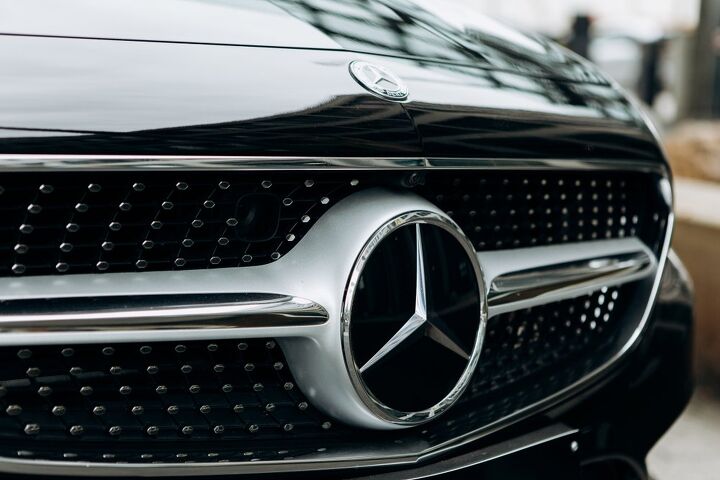
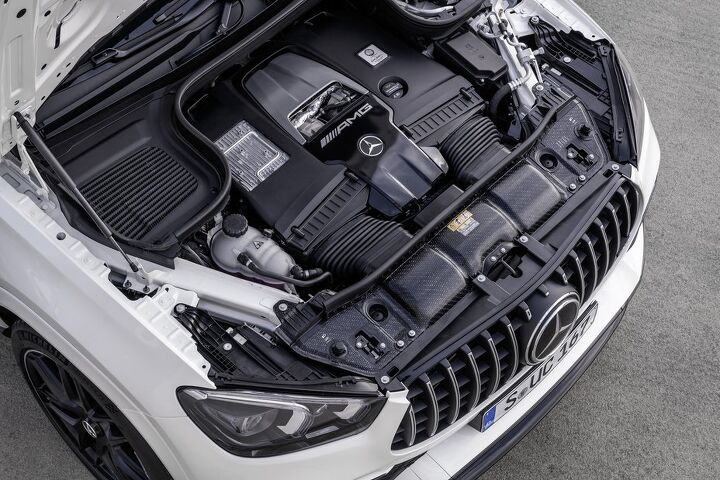

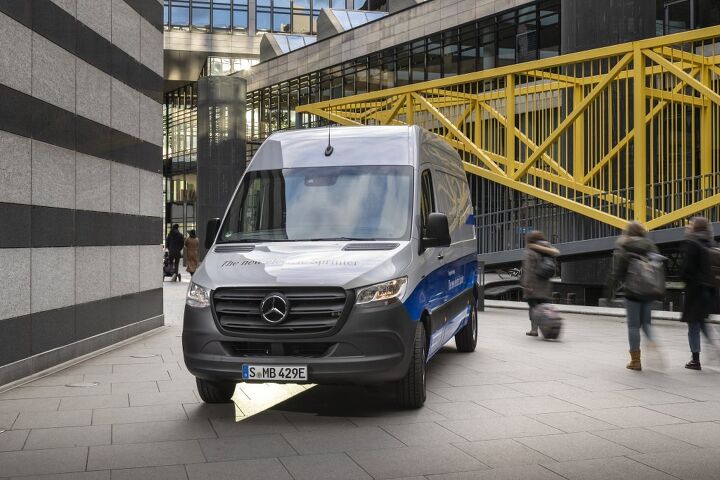



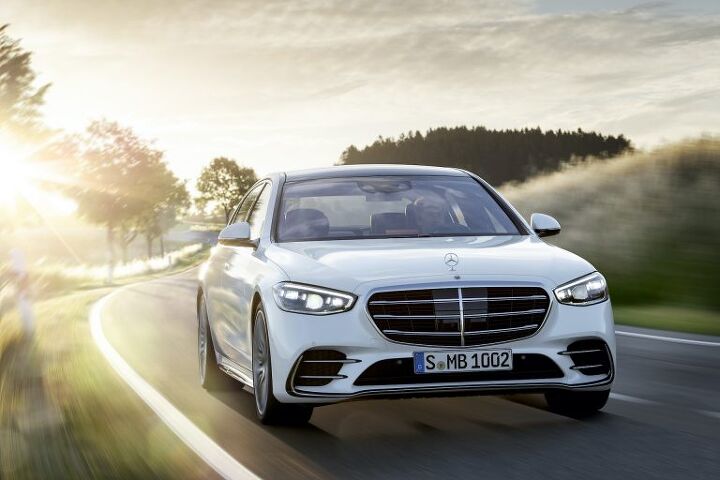












Recent Comments